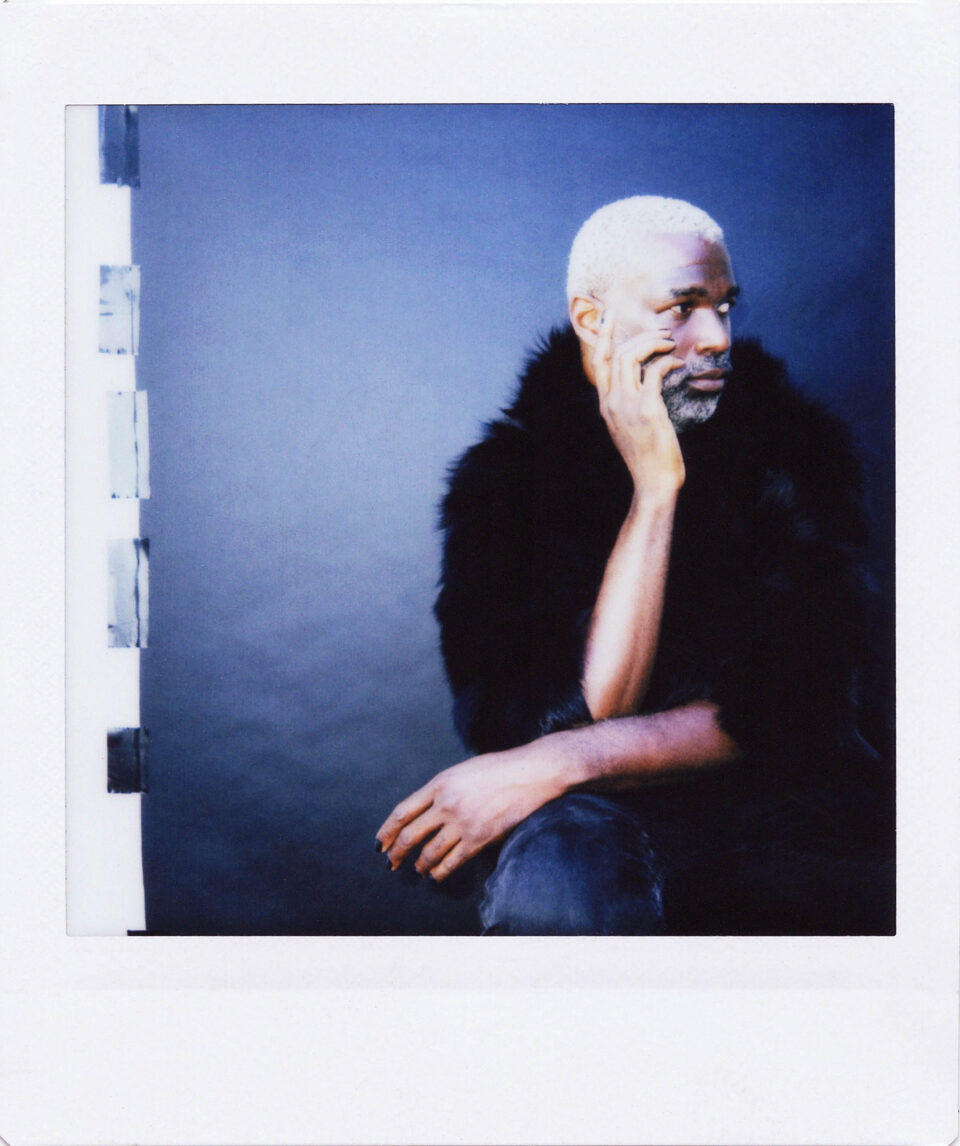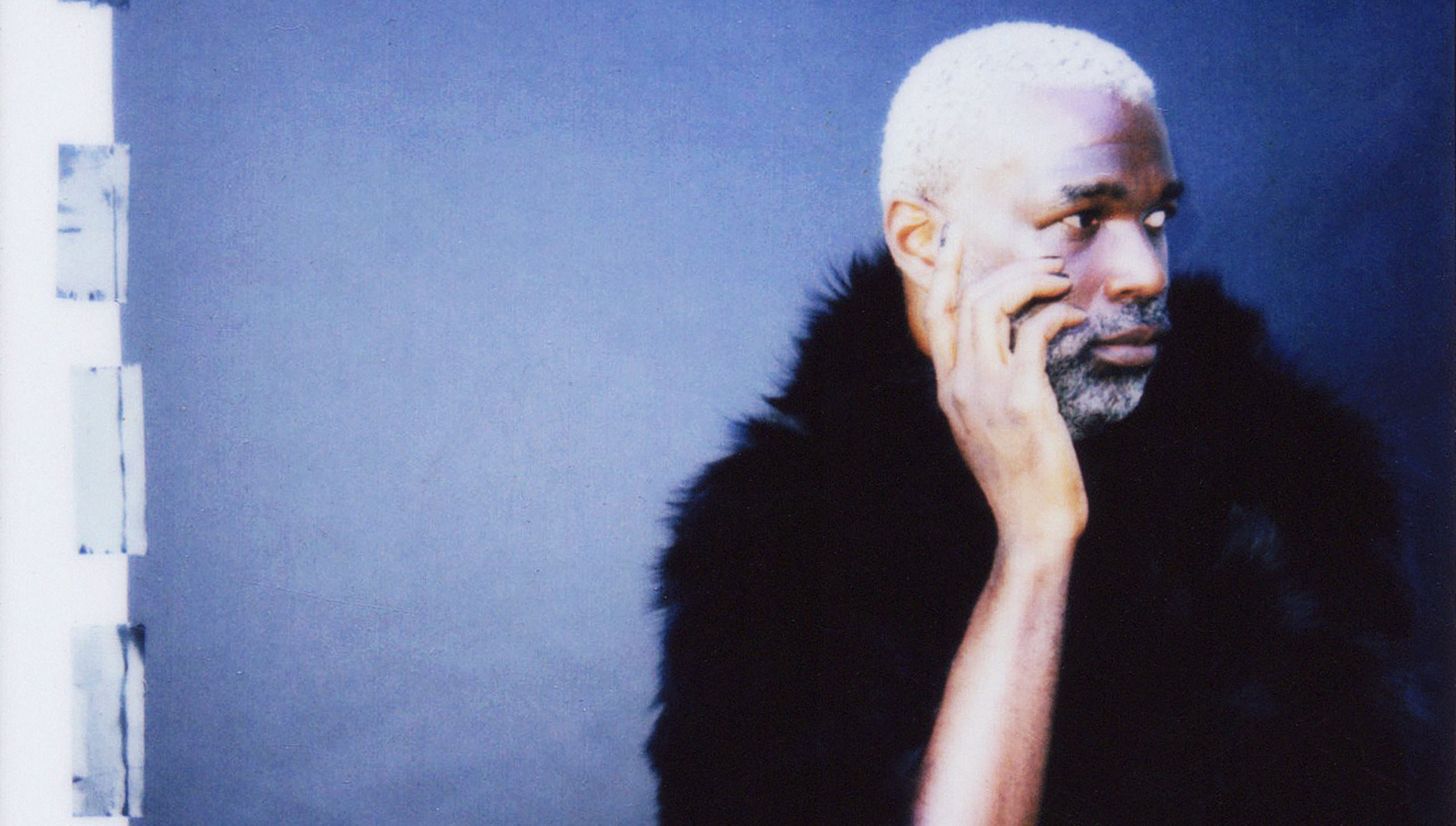For Tunde Adebimpe, the journey from initial demos to his debut solo album Thee Black Boltz has been filled with starts and stops, triumph and tragedy. The tale unfolds like a movie (perhaps you’ve seen Adebimpe star in some of those), beginning way back in 2019 when his main gig as the lead singer of TV on the Radio was officially put on ice. He dabbled in some solo work in the past, but this new iteration of songs felt like a fresh start, a way to explore ideas that didn’t fit the TVotR canon. There was only one problem: No one seemed interested in releasing them.
“During the pandemic I was shopping around these very rough demos and there were no takers at all, which was weird,” he tells me. After doubling down and working on more ideas, he eventually connected with Sub Pop, who signed him to a deal. A week after the ink dried, Tunde tragically lost his sister, a heartbreaking loss that reverberates throughout this project, both in its initial formation and in the final product. As he explains, it wasn’t something he ever got over, ever learned to deal with, or began to comprehend. But he ultimately figured out new ways to shape his grief, to turn it into different forms—forms that eventually became songs, songs that eventually became Thee Black Boltz.
In some ways, making the album was a reprieve from the emotions he was flooded with each day. It wasn’t an escape, but it was a necessity. It was a way to tether himself to his work, to ground himself in a semblance of normalcy when the surreality of grief turns everything into unimaginable chaos. As such, the album is a startlingly clear reflection on life, death, and moving through the world differently when people you love leave it. It’s beautiful and bold, with rough edges that wink at some of the punk charm from the early days of TV on the Radio. After circling solo music for almost two decades, Thee Black Boltz was certainly worth the wait.
Read more from our conversation below.
How has your relationship with these songs which emerged out of grief evolved now that some time has passed?
I was about to say I’m better, but I feel like that’s never really true when you’re dealing with loss. It’s turned into something else that I can put on the same level as good things that have happened before and since. The record was a way of sorting through that. Sorting through heavy grief is making a map to get out of a maze, or to get yourself out of your head, or to get yourself out of the center of all of those feelings and get them away from you in a way that you can observe them as a scale model. It’s something that you can put in a place. Collaborating with my friend Wilder [Zoby], I’d just give him things and say, “Whatever you want to do with this, whatever feeling you’re getting from it, do it.” That’s another way of getting away from it. You still recognize the spine, but it’s dressed up in something.
Did the personal nature of what you wanted to write about play into why this was a solo record versus a new TV on the Radio album?
The biggest thing that happened while writing was my sister passed away really suddenly out of nowhere. I’d already started writing because TV on the Radio had put things down in 2019, so I had a bunch of stuff that the band hadn’t used that I’d been working on. It was just something to do. I was like, “What else am I going to do?” I’m unqualified to get any sort of real job at this juncture in my life. I fucked that up, so I’m going to keep making things.
During the pandemic I was shopping around these very rough demos and there were no takers at all, which was weird. I figured I could put it out myself eventually if it’s worth putting out, but I took it to Sub Pop after all of these other rejections and they were psyched about it. They said that they’d wanted to work with me and the band forever, which is not a piece of information that ever made it to me. That was super encouraging to hear. We worked out a signing and a week later my sister passed away. It went from “It’s time to go!” to, “I don’t want to do anything at all.” After you take care of the practicality of this person no longer being here, you’re left with the memories and the emotions and the very confusing aspect of, “I was talking to this person two days ago and they were fine.”
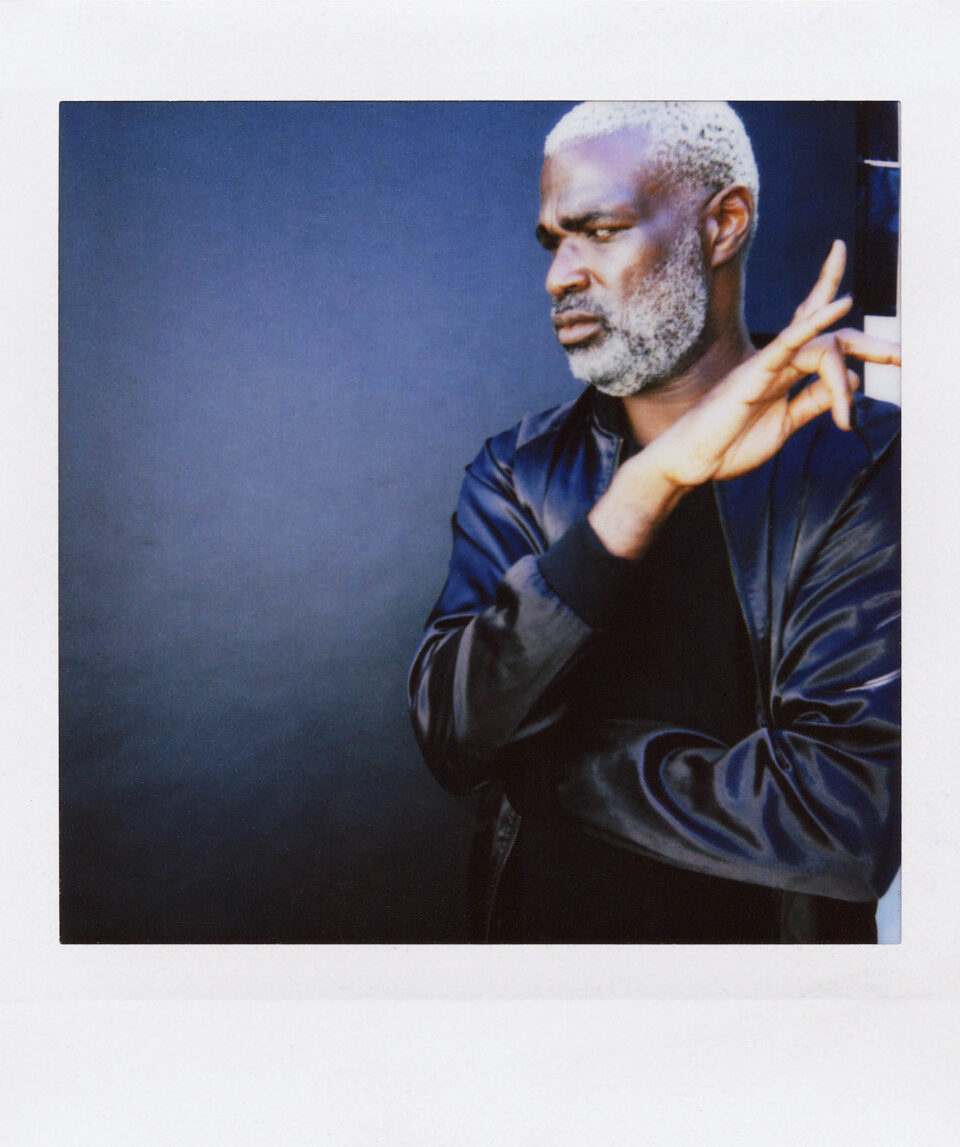
“Sorting through heavy grief is making a map to get out of a maze...to get [those feelings] away from you in a way that you can observe them as a scale model.”
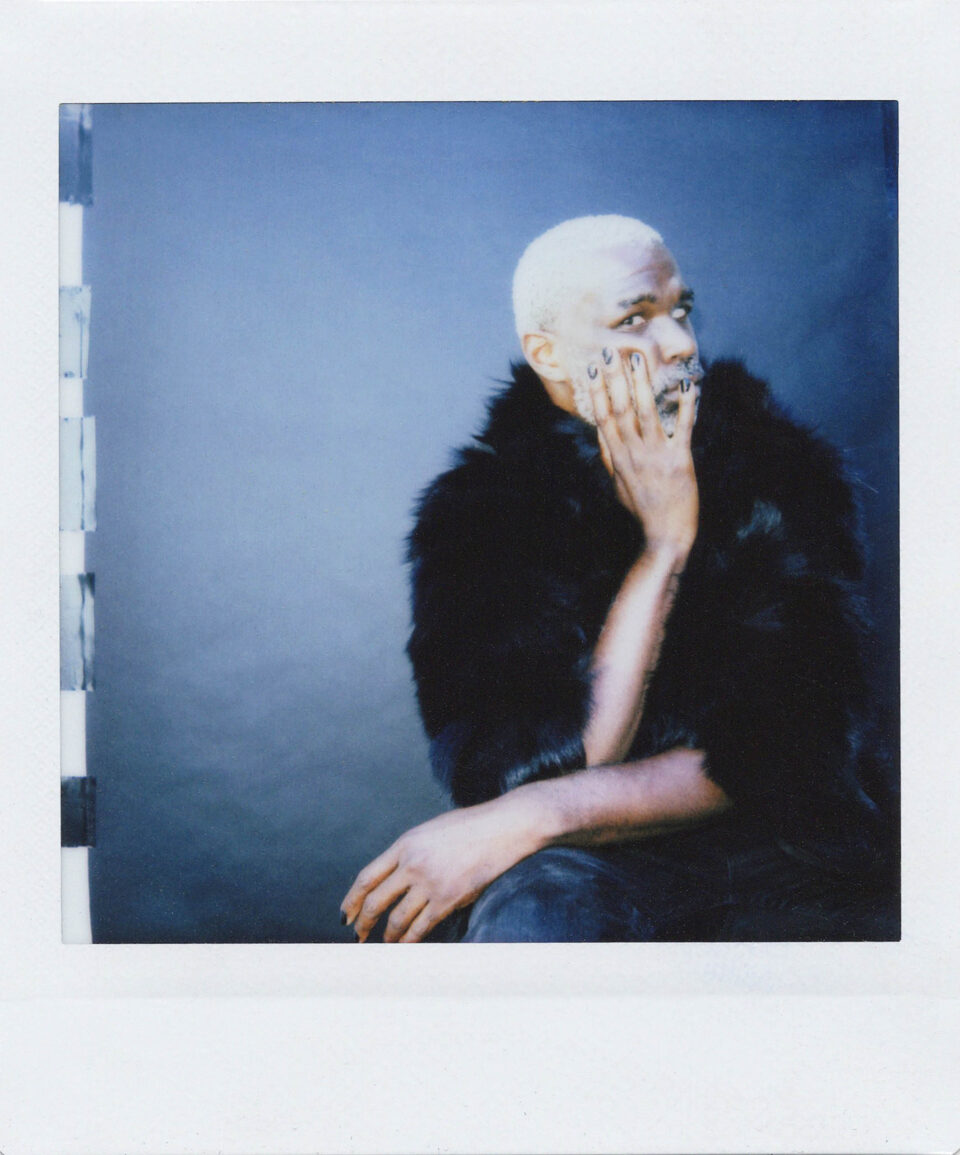
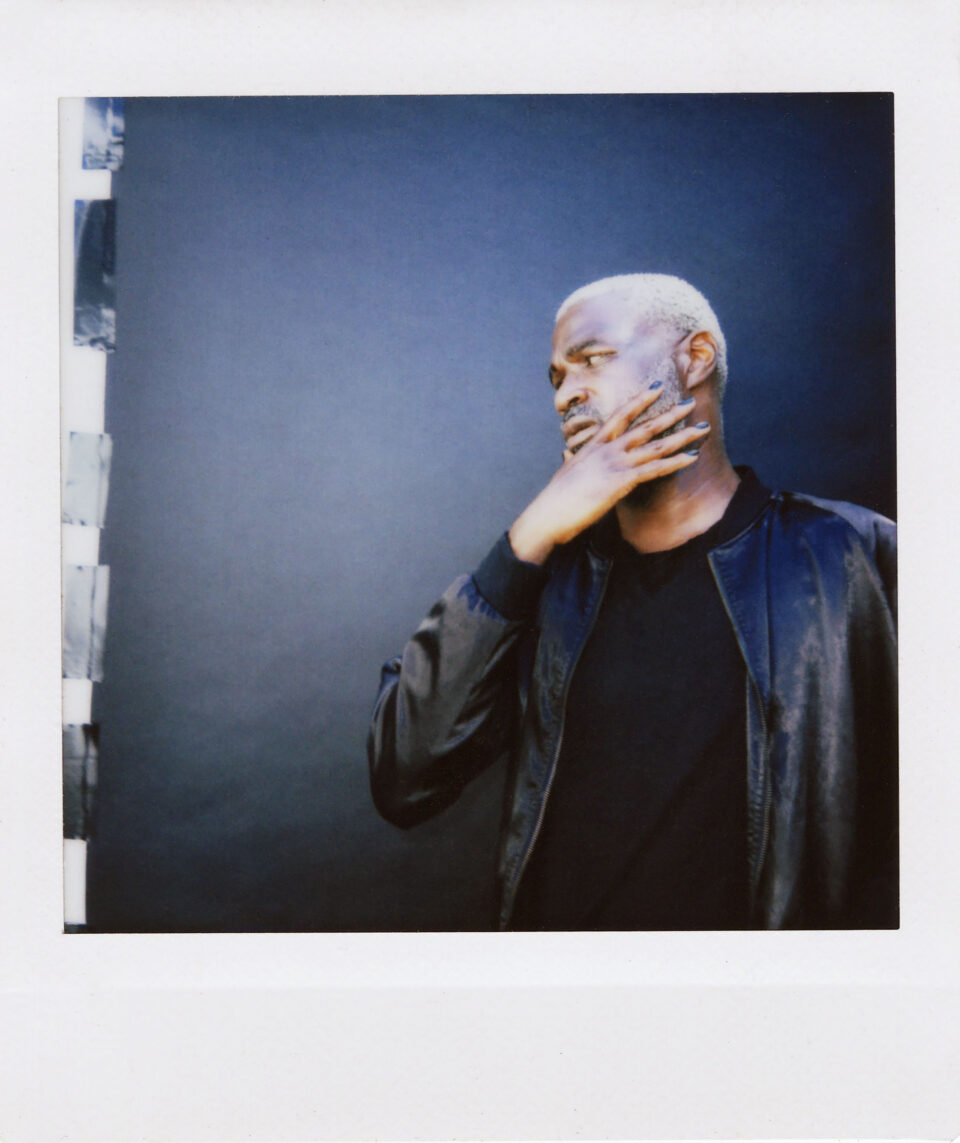
You have family to take care of. It’s not like being 24 or 25 and just being like, “I’m going to walk the earth and drink muddy water and sleep in a hollow log and die in this fucking cave because it sucks so bad.” You have responsibilities. You have to get it together on some level. Having the record wasn’t pressure, but it was an obligation. I did say I would do this. I did sign a contract. I have been given a bit of money to do this, so I gotta do it—even though they were like, “Take your time.” I feel very lucky that I had enough to work on during that period. It helped me process a lot of it. I’m glad that there’s this document that’s rooted in those feelings, but is not exactly those feelings, and I hope it’s useful to somebody else in whatever way it can be.
I’ve been a fan of your solo endeavors and one-off shows for a while. I guess the stupid question is, why did it take you so long to put out your own music?
We [TV on the Radio] were just touring and writing forever. We took a slightly longer break as a band in 2011, and I’d started putting some stuff together. My friend taught music production at Dubspot and I started learning some production to figure out what suits me to make a pretty rudimentary solo record. When we’d just started, everyone [in the band] decided it was time to get back to it.
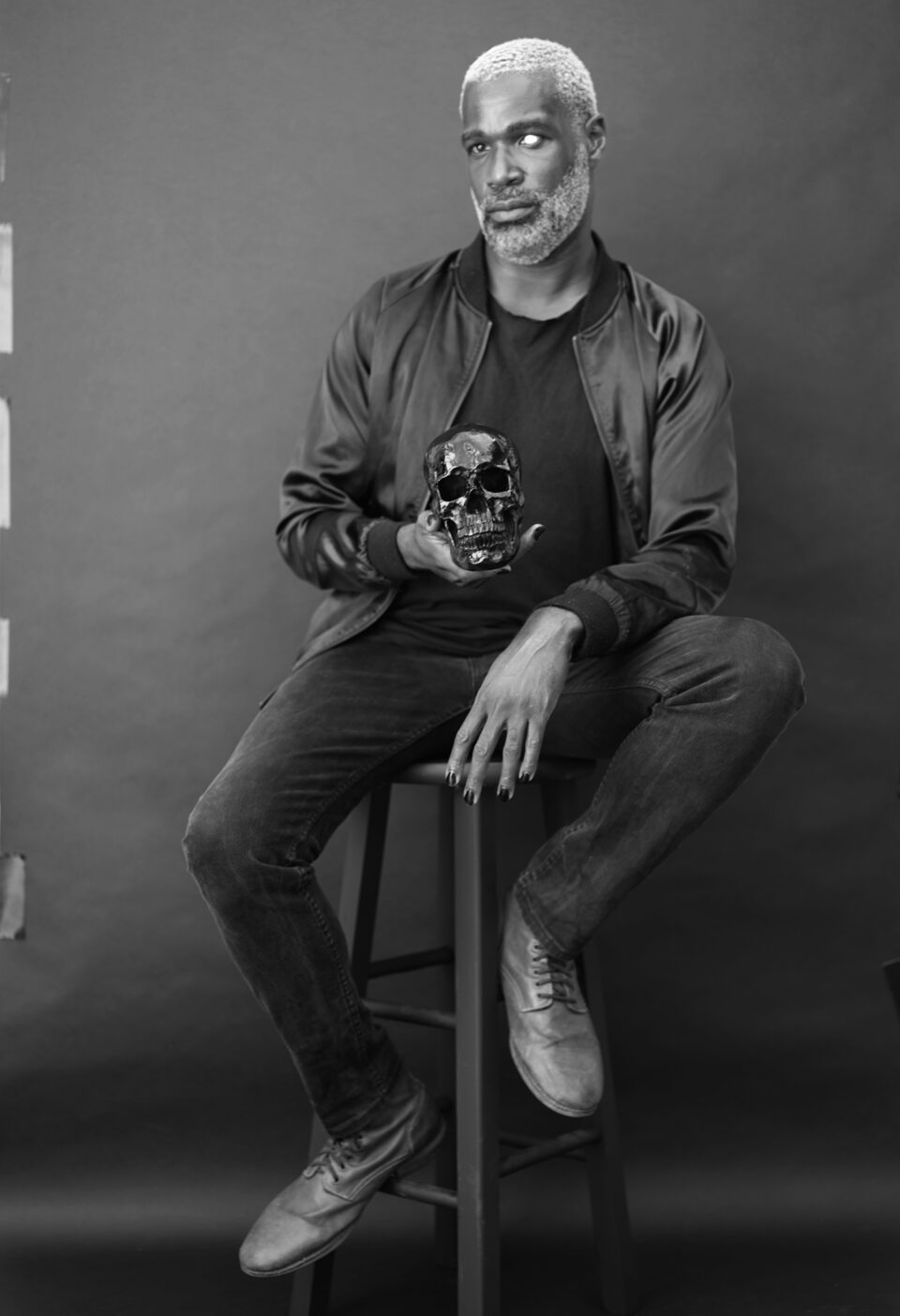
Do nerves factor into an album like this coming out?
I feel like we were working on it for so long. I’m so ready for people to hear it, and the responses to the singles have been good. It’s definitely not nerves. It’s more relief that it’s going to be out in the world, for better or for worse. The nerves definitely kicked in after no one wanted to put it out. The work that we all did on it—that Wilder did on it, and all of the players did on it—couldn’t have gone better. It feels to me like a mixtape you gave to somebody when you were 18, just being like, “Here’s all this shit that I like, it’s really weird, it’s all over the place, but it’s all in one package and it’s for you.”
“It feels to me like a mixtape you gave to somebody when you were 18, just being like, ‘Here’s all this shit that I like, it’s really weird, it’s all over the place, but it’s all in one package and it’s for you.’”
Do you get the same sort of cathartic release when you’re drawing or when you’re acting? Does that satisfy the same creative itch for you as music does?
Drawing and painting is more meditative. It takes a lot longer to finish something, so you keep going back to it. If you work on a song for two weeks and you’re like, “This is trash,” you just stop. Destroying [a painting] is a little bit harder, but they’re all kind of the same thing. I love acting because you’re part of someone else’s project and whatever you bring to it can get shaped in a collaboration. With music and touring, you have to be there every time it’s performed. If you get a part in a movie or a TV show, you do two or three months and then you never have to be there again. It just goes wherever it’s going to go. It’s all under the same thing, which is, I’ve made it so no one will hire me to do anything [laughs].
Oh, you are speaking my language now.
Like, “Oh, I guess this is what I’m doing.” FL
